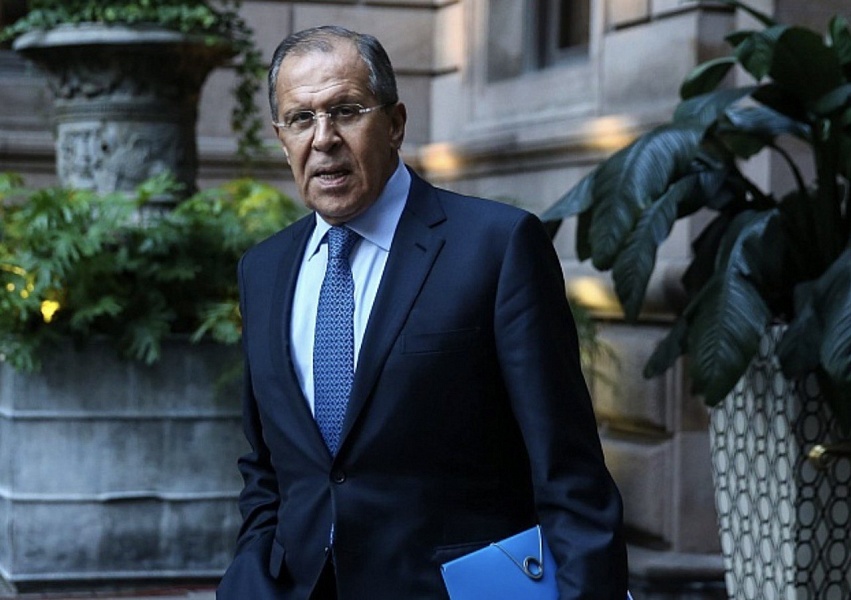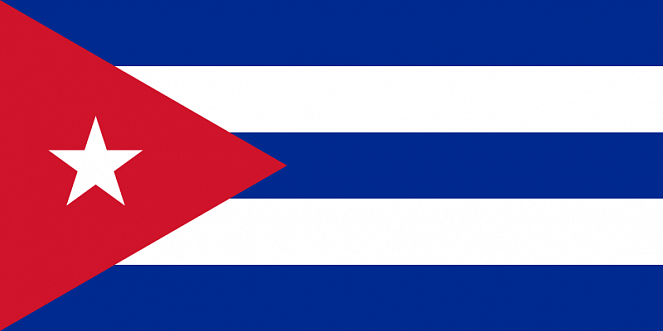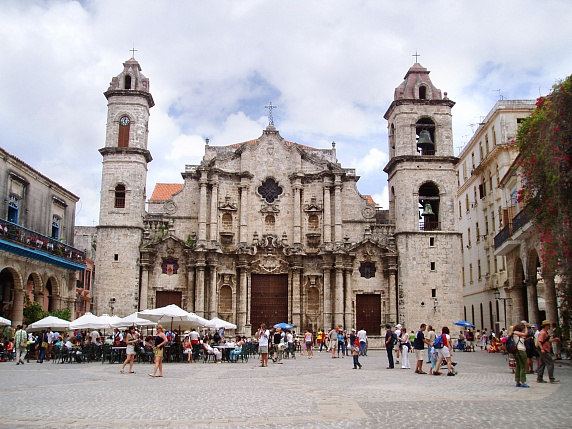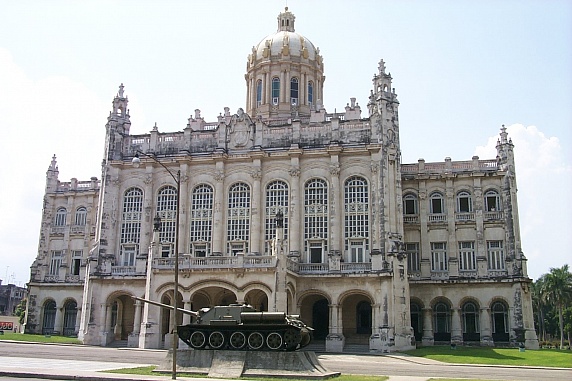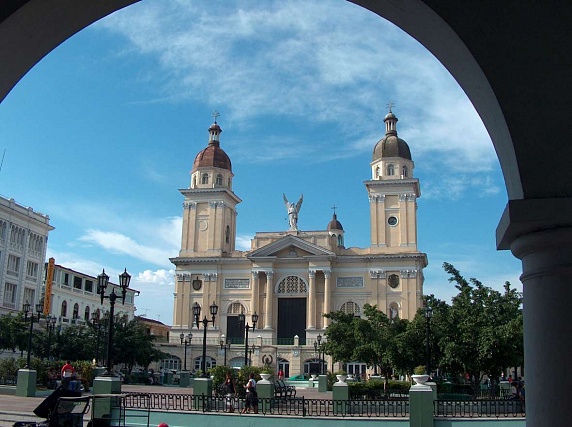 la República de Cuba
la República de Cuba
Foreign Minister Sergey Lavrov’s interview for the documentary “On the Brink: The Lessons of the Cuban Missile Crisis,” Moscow, October 30, 2022
Question: If we look at the Cuban Missile Crisis, why do you think the United States attempted to deploy its missiles in the direct vicinity of our borders? In what way was the Soviet Union threatened by the deployment of US middle-range missiles in Türkiye in the 1960s?
Sergey Lavrov: The United States was not just attempting it; it had actually deployed its Jupiter middle-range missiles in Türkiye and Italy. I am mentioning Italy because the missiles, if launched from that country, had sufficient range to cover much of European Russia. Their flight time from Türkiye to Moscow is ten-odd minutes, as it was believed at that time. It is this factor that triggered the Cuban Missile Crisis, rather than what the Western historiography seeks to present as its cause, seeing the root of the problem in Russia deploying its missiles on Cuba. We were just responding to what the United States had already done in the USSR’s backyard.
If we distance ourselves from the threat of a US aggression against Cuba – and it was quite real, with very real attempts made – the main military-strategic problem was the “deployment” [of US nuclear weapons] in direct vicinity of the USSR’s borders. At that time, the US possessed, apart from the Jupiter missiles, 4,500 nuclear warheads, or several times more than the overall number of nuclear munitions available to the USSR. A factor of no small importance was that Jupiter was viewed both by the USSR and the West as a first-strike system. Given this, the decisions taken at that juncture were prompted by the existence of real threats to this country’s security.
The United States took the situation quite seriously, as is testified by the memoirs of eyewitnesses who were present in the Oval Office during a conversation between President John F. Kennedy and his aides. Kennedy was saying that he did not understand why Khrushchev had to deploy missiles in Cuba. The Soviet leader should realise, he said, that this was the same for the United States as if the Americans deployed their missiles in Türkiye. A surprised aide told him that this was what the United States had actually done. I hope that in the present-day situation, President Joe Biden will have a better understanding of who and how issues orders.
Question: How similar are the situations in the 1960s and now in the event of an escalation in Ukraine? In both cases, we can clearly see that the United States is seeking to be the hegemon. To what extent can the Cuban Missile Crisis experience help us here and now?
Sergey Lavrov: Some similarity is certainly in evidence. Like in 1962, the case in point is creating direct threats to Russia’s security right on its borders. Today, this threat is even closer than the Jupiter missiles deployed in Türkiye. A military campaign is in progress, designed to supply Ukraine with all types of weapons. There is serious talk about the need to strengthen NATO’ nuclear capability in addition to the five countries that already have US tactical nuclear weapons on their territory. Poland is urging the Americans to deploy their nuclear bombs on its territory. This situation is highly alarming.
The difference is that in the far-away 1962, Khrushchev and Kennedy rose to the challenge and displayed responsibility and wisdom, whereas now we see no such readiness on the part of either Washington or its satellites. There are numerous examples. To begin with, the chance for talks that materialised at the meeting in Istanbul in late March, was destroyed – we can now assert this – on direct orders from Washington.
The United States, NATO, and the EU continue ranting about the need to defeat Russia “on the battlefield.” As you have justly said, this is motivated by Washington’s absolute inability to renounce the desire to rule all and sundry. If earlier they sang, “Britannia, rule the waves,” today, America wants to sing, “America, rule the planet.” President of Russia Vladimir Putin said this explicitly, clearly, and unequivocally in his remarks at the Kremlin, when agreements were signed between Russia and the four new constituent entities of the Russian Federation. And this is the main difference.
Will Europe have enough sense of responsibility? After all, the Europeans are suffering from the economic sanctions on a much greater scale than the United States. A growing number of economists both in Russia and in the West come to the conclusion that the United States intends to bleed dry and de-industrialise the European economy. The Germans are relocating a lot of their businesses to the US with all the ensuing consequences for the EU’s long-term competitiveness. Weakening Europe militarily is also in line with Washington’s interests. It wants to keep Europe constantly under strain and make it rush weapons to Ukraine, while filling EU countries’ arms depots with US supplies. We understand all this. What we have here are the combined economic, purely selfish calculations and ideological superiority complexes.
Question: There is a point of view that in the 1960s, decisions were taken by men who had participated in World War II and knew what it was all about. Decision-making in
Sergey Lavrov: This is a universal topic for both the Americans and the Europeans. But in
The difference is that a considerable number of our citizens come from families who, in one way or another, were part of the Great Patriotic War, who suffered, and lost family members. This memory is sacred because of the huge number of war casualties and the self-sacrifice demonstrated by the multi-ethnic Soviet people. It is this that makes us distinct from those who are so light-minded on the subject of nuclear weapons.
Mr Biden himself was born during World War II and he knows that this subject has evoked serious debate in the post-war period. At that time, it did have an influence on the
We came to feel long ago, long before the start of the special military operation, that in contacts with us, our German colleagues, using different methods and expressions, sent us this clear message: “Dear colleagues, we Germans have settled our accounts with everyone for everything and no longer owe anyone anything. So, stop reproaching us for what happened in World War II.” This is a rather dangerous approach. Many people in
I am not taking into consideration the subject of war reparations that the Greeks put on the agenda after
Question: What shall we do? Khrushchev and Kennedy, as you said, came to terms during the Cuban Missile Crisis. What is the way, as you see it, to de-escalate the conflict so that
Sergey Lavrov: President Vladimir Putin repeatedly said that we have never refused, nor were refusing to negotiate. He warned that those who declined talks, like
Starting in February 2014, we saw no activity in this regard. The first instinct of the new regime following the bloody coup was to eliminate the status of the Russian language as held in the law, to expel the Russians from
We are always ready to listen to our Western colleagues if they come to us with yet another request for a dialogue. I hope they will be able to suggest some serious approach that will help ease tensions and take into account all the
If they come to us with realistic proposals based on the principles of equality and respect for the interests of all parties, proposals aimed at a search for compromise and a balance of interests of all countries in the region, we, as has always been the case, will always be available.

